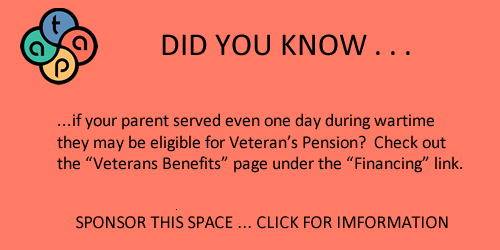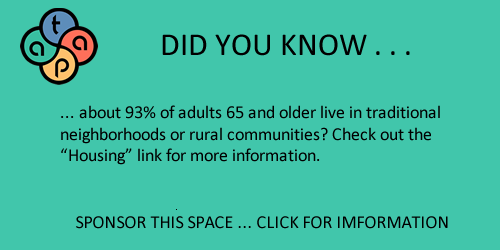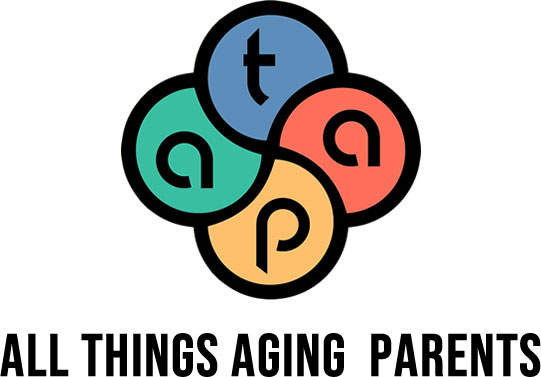Previous Insights
Advocating for Your Parents - Part 2
Marianne Smith
You know your parents, right? You know their favorite foods if they like to dance, to read, to sing, to golf. You’d like to think you know something about their values and ethics, right? Especially since they raised you and tried to instill them in you. But when it comes to end-of-life values, can you say that you know what they want? What they value? What if you and a sibling disagree on what Mom or Dad would want? What if you are sure that Dad would want to be kept alive at all costs and your brother says Dad wouldn’t want to be left “as a vegetable”? Who is right? Who even knows the questions to ask?
Your priority as an advocate for your parent should be to have a plan in place before a crisis hits. When emotions are strong and the stakes are high, conflict is possible even among the most loving and reasonable family members. But the likelihood of conflict is significantly increased when there has been no prior discussion of what Mom or Dad would want for medical treatment. How will you know if Mom wants to receive artificial nutrition or be maintained on a ventilator unless you talk about it? What are her values? These ethical decisions deserve the weight of serious consideration, rather than expediency or panic
Values and Treatments
Obviously, not every situation can be anticipated. It makes sense that when you have discussions with your parents about what could happen in the future you look at some core values. What do your parents value most?
- Preservation of life? Then they may be more inclined to accept all available life-sustaining treatments or technologies.
- Freedom from pain? Then controlling pain through medication and sedation may take precedence over maintaining consciousness or extending life.
- Being able to meaningfully interact with family and friends? Then withholding or withdrawing life-sustaining treatment in advanced stages of dementia or traumatic brain injury may be preferable.
You or your parents may have other values that will guide your choices. If you understand these values, it is easier for you to accept the decisions your parents make, and to advocate on their behalf.
Then there are treatments that are often focal points for end-of-life decisions:
- Mechanical ventilation, if they cannot breathe on their own
- Artificial nutrition and hydration, if they cannot feed themselves
- Cardiac support (CPR)
- Dialysis
Most of us don’t even realize that these are issues that need to be addressed. But in a medical emergency, or a situation that drags on and on with your parent unconscious, someone (maybe you) may be called on to make these decisions. If you are their health care proxy, it will be far easier for you to advocate for care that will be in line with their wishes if you have talked with them about this first. And your parents can document what they want or don’t want through a Living Will (sometimes known as simply an Advance Directive).
Advance Care Planning
What is a “health care proxy”? Also called Medical Power of Attorney, this is the person who has been named to make medical decisions on behalf of another. I cannot urge you strongly enough to have your parents decide who will make choices on their behalf if they are unable to speak for themselves. This choice can be documented in a Medical Power of Attorney form, and once that is done, health care professionals are obliged to carry out the proxy’s instructions on behalf of his/her parent.
These conversations are called “advance care planning.” The forms that document the wishes expressed in these conversations are called “advance directives.” These include, among others:
- Medical Power of Attorney
- Living Will (or Directive to Physicians and Family or Advance Directive)
- Do Not Resuscitate Order
- Durable Power of Attorney
You can get more information about all of these preparations on All Things Aging Parents under our Legal and Medical page.
Are you terrified of having these conversations with your parents? Odds are that’s because you don’t know how to begin the conversation. Don’t worry – someone has thought through that for you. Caring Conversations and The Conversation Project are great places to start.
Have the conversation. Put in the effort to learn your parent’s values regarding the end of their life. This preparation will stand you in good stead when you are called to advocate for them and make the tough calls about treatment for them when they can no longer speak for themselves.


The information contained in this website is provided as a service to the Internet community, and does not constitute legal or medical advice. All Things Aging Parents works to provide quality information, but we make no claims, promises or guarantees about the accuracy, completeness, or adequacy of the information contained in or linked to this website. Information should be researched and used in light of the specific circumstances of each case. Because laws and policies are constantly hanging, nothing provided here should be used as a substitute for professional advice.
Senior care is a challenging and constantly changing topic. In order to stay relevant to your needs, ATAP welcomes your comments and suggestions. Please email us at: info@allthingsagingparents.com
All Things Aging Parents helps families during the overwhelming times of changing family dynamics and responsibilities. We don't want to add stress to this process so we offer our information free of commitment. Our sponsors make this possible. Please click here for more information about becoming a sponsor.
Privacy Policy


